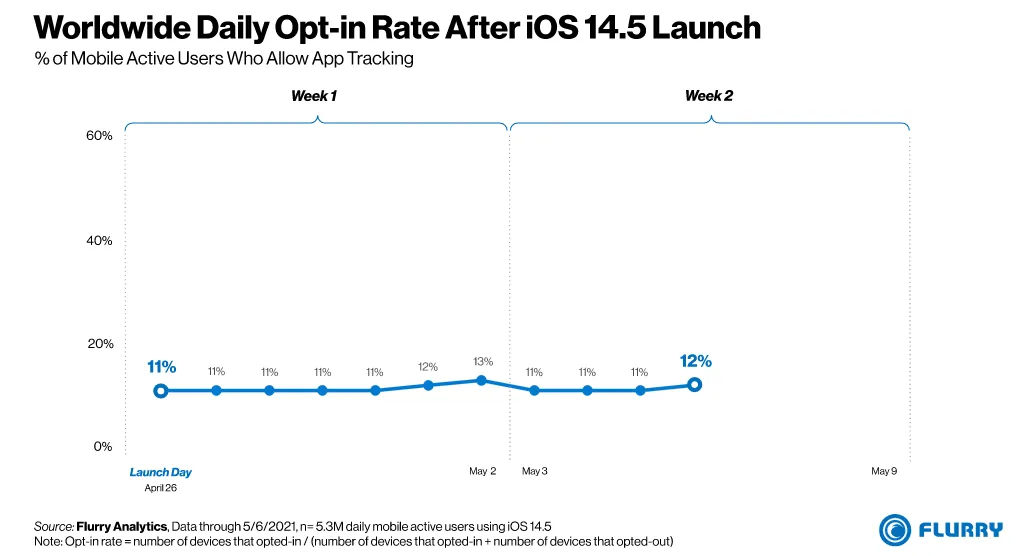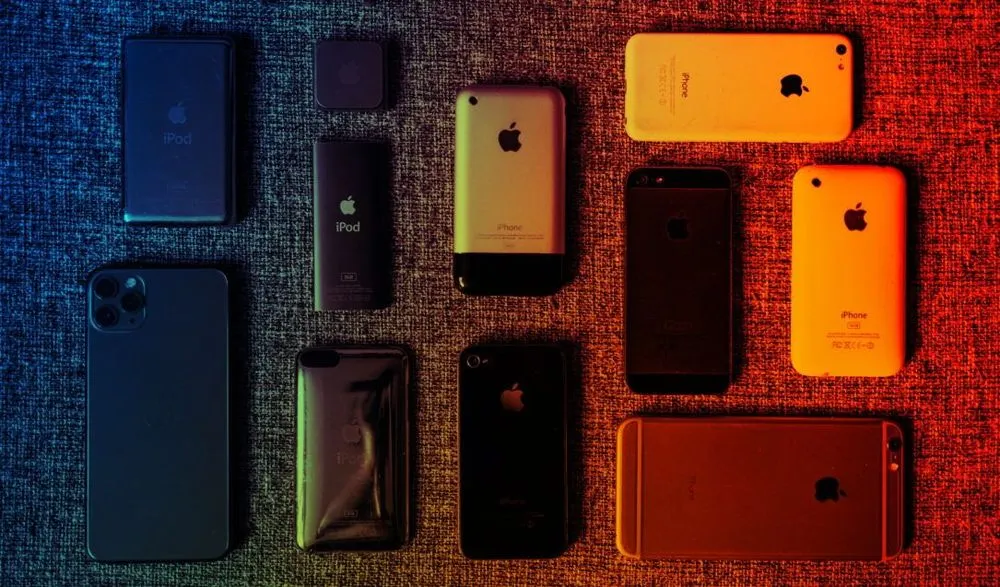iOS users are using Apple's new tracking opt-out feature, ad industry stats show
Twelve days after Apple released iOS 14.5, most iPhone users today are taking advantage of a new anti-tracking feature included in the updated operating system and are refusing to allow iOS apps to track their activities.
Called App Tracking Transparency, the feature is a new set of rules for app developers. If their app collects data about users, developers must show a popup asking for the user's permission.
The feature, which has been announced last year at the Apple WWDC event, has been widely criticized by the advertising industry, who feared they might lose visibility for what users are doing on iOS devices.
Those fears appear to have been more than justified.
According to new data released by Flurry Analytics, a Verizon-owned ad analytics company, around an estimated 88% of iOS users worldwide have refused to allow apps to track them.

The number, which is even higher in the US, at around 96%, shows exactly why the feature was so widely criticized last year.
That criticism has not died down even today. Earlier this week, Facebook, which heavily relies on in-app user tracking capabilities, began showing giant popups to iOS users asking them to enable tracking, as part of a covert veiled threat that they might soon charge for their apps, as the user analytics allowed the company to keep its services "free of charge."
However, as the Flurry Analytics data shows, the move has been more than welcomed and even universally embraced by iOS users.
For now, it is unclear how large of a damage Apple has caused to a global ad industry that raked in more than $189 billion in 2019 and was estimated to reach $240 billion in 2022.
Catalin Cimpanu
is a cybersecurity reporter who previously worked at ZDNet and Bleeping Computer, where he became a well-known name in the industry for his constant scoops on new vulnerabilities, cyberattacks, and law enforcement actions against hackers.



